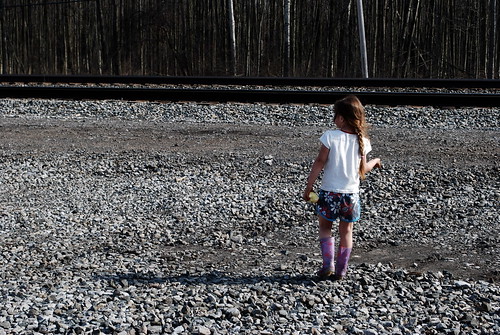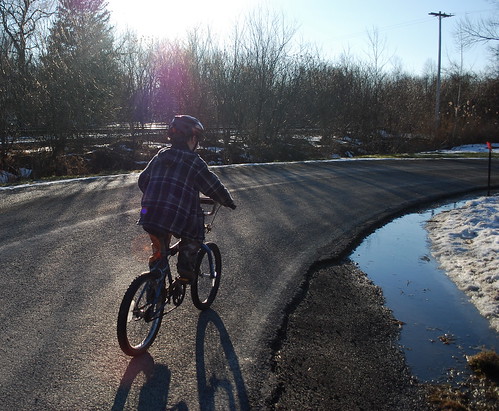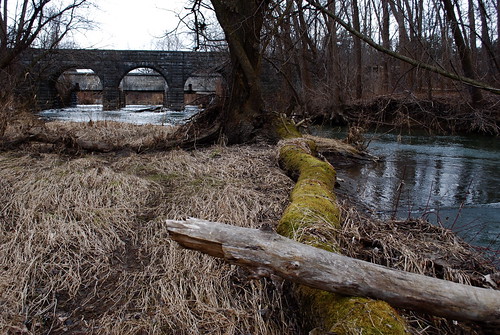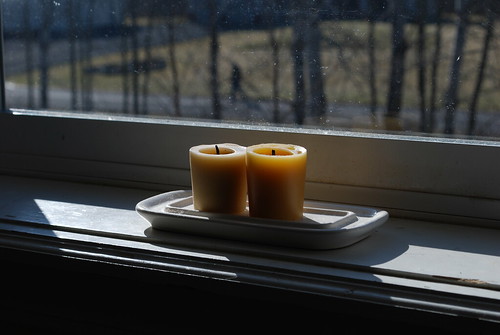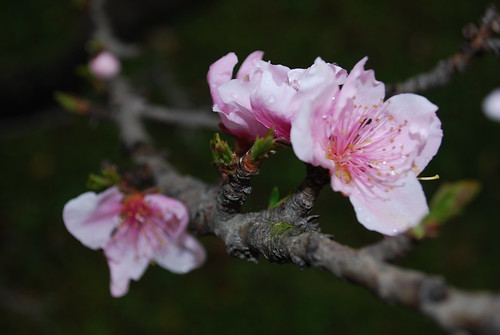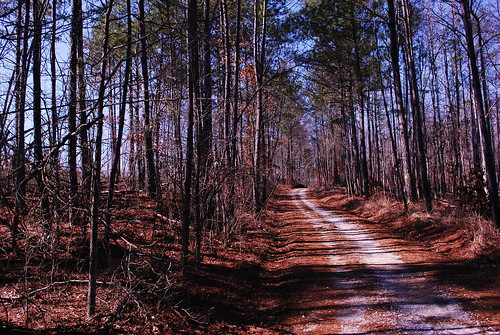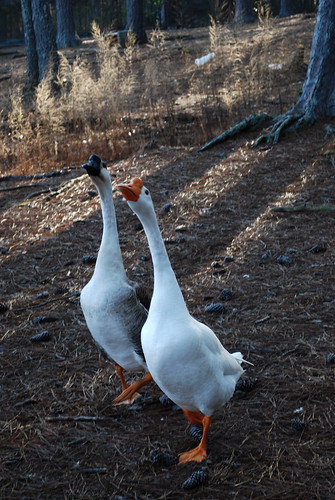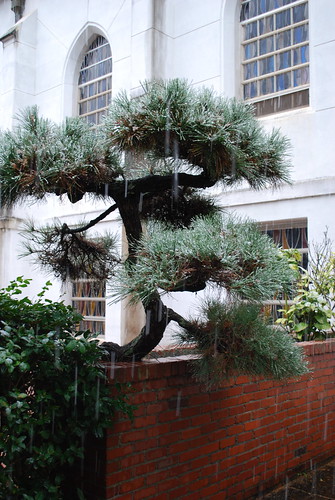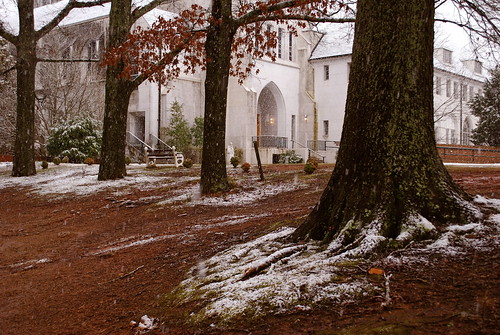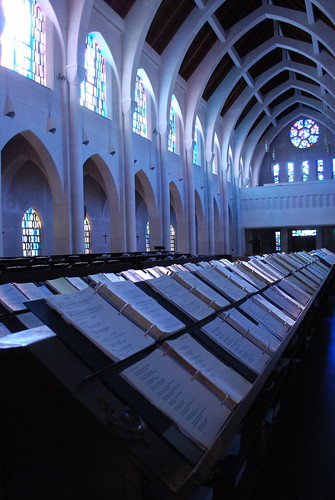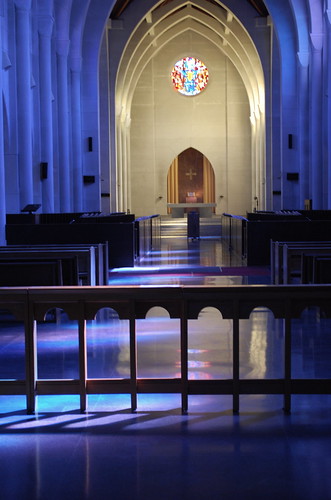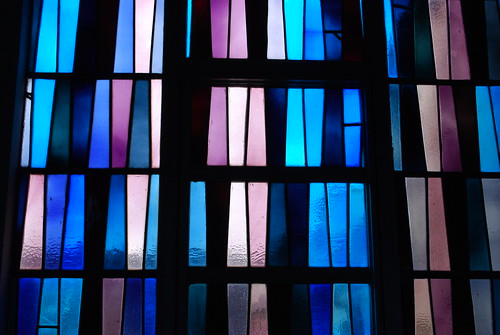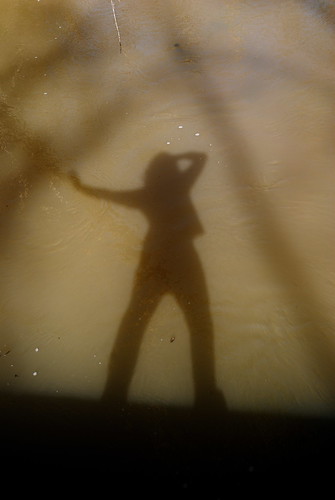
For six of the eight days I spent at Southern Monastery, I observed silence. I did not speak. Those who know me in real life -- I'm a talkative extrovert -- may find that hard to believe. The silence was both easier than I thought would be, and harder.
I'm used to silence on the days I work at home. I never turn on a television set or a radio. I'm not someone who likes background music. So my house -- although it's crowded in the evenings and filled with live music on weekends -- is mostly silent during the day, when I'm writing or grading papers or reading. When I was in my room at the monastery, writing or reading, or taking walks around the grounds, or sitting in the church, the quiet seemed completely normal.
What felt strange was staying silent when I came into contact with people -- in the hallways, at meals, in the gardens. Especially the meals. It felt odd to sit at a table with other retreatants and exchange nothing more than a smile. At first, it caused me to eat incredibly fast. Talking is what normally slows me down. So I'd go to lunch, get a tray full of food, and be done in about five minutes flat. By the end of the week, the quiet in the dining room was beginning to feel normal, and I was able to relax and drink a cup of hot tea after my meal. Most of the retreatants looked down at their plates when they were eating, and I had the distinct feeling, as I'd gaze around the room, that I was the lone extrovert in a sea of introverts. Or perhaps they were all thinking deep thoughts.
Silence meant that my thoughts were not interrupted. I can remember the days of trying to write in a houseful of small children, and being at a monastery was the opposite of that. Even meals or snacks or walks didn't break my concentration. I've never been able to focus so intently on my writing. I was meditating three times each day, and going to some of the services in the church, but in the silence, I was able to move from meditation to writing to prayer and back again without any distractions. It's hard to describe the intensity of spending so much time with myself, with no one else to take care of.
The other people at the retreat house had come for a structured retreat -- with talks given by a retreat leader in the big conference room, a set schedule of things to do. There were about forty of them altogether, moving quietly along the hallways or eating at the tables in the dining room, or joining the monks for prayer in the church. But then, on Sunday, that particular scheduled retreat was over, and everyone went home. Everyone.
Late afternoon, when I padded down to the kitchen in sweatpants and a t-shirt to refill my tea mug, I noticed that the silence in the building had a different quality to it. No footsteps. No coughing. No clink of mugs. The housekeeping staff, who normally could be found near the kitchen, had gone home. The God-love-you Woman, who ran the little office near the entrance and was so helpful that she'd brought a quart of soy milk for me to have on my cereal, had locked her door and gone home. The parking lot outside the retreat house was empty.
When I went to Compline at the end of the day, the big church held about forty monks. And me. Everyone else was gone. As tradition dictates, Compline was held in the darkness. I could just make out the outlines of the monks in their cream robes as they sang and chanted, but I suspect that in my red fleece and dark jeans, I was invisible. When the church bell rang for the last time, the monks disappeared into their enclosure, on the far side of the church. These hours after Compline are called the Great Silence, and for most of the monks, whose day starts at 3:30 am, the Great Silence means bedtime.
As I walked back into the dark retreat house, I was alone. From my window, I could see the dark shape of the church looming over me, with its high, arched windows and the cross held up to the sky. The wind was howling -- snow was still falling -- and I could hear what sounded to me like coyotes. I felt like I had strayed into a Gothic novel, or perhaps a spooky episode of the Simpsons.
I stayed up and wrote as long as I could, and then slept until the church bells rang, just outside my window, for Vigils at 4 a.m. I didn't get dressed and go to prayer, but stayed in bed, listening to the wind push its way through cracks in the inefficient windows. Despite the haunting darkness, my thoughts were calm and comforting, not like the demon thoughts I often have during February. Perhaps it was all those monks just on the other side of the stone wall, praying.


